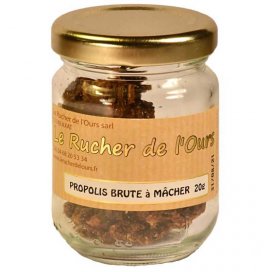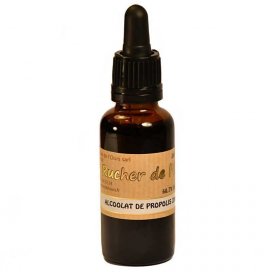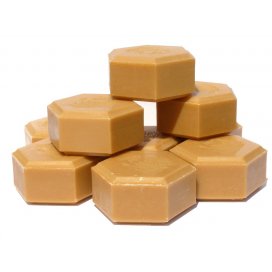The hive's natural antibiotic

Propolis is a natural substance collected by bees. It comes in a spray or in a chewable form and possesses antimicrobial properties. Propolis is made by bees from a resinous substance which they collect from the buds of certain varieties of trees (pine, fir, spruce, willow, chestnut, birch, ash, plum, elm, oak, and several species of poplars). The propolis collected in the hive is composed of 50-55% of resins and balms, 25 to 35% of waxes, 10% of essential oils, 5% of Pollen, 5% of various organic and mineral materials. Many elements have been broken down and identified, the main ones being from the flavonoid family. Vitamins A and B3 or PP are also present, as well as a wide variety of trace elements: aluminum, silver, boron, chromium, cobalt , copper, tin, magnesium, manganese, molybdenum, nikel, lead, selenium, silicon, stonium, titanium, vanadium, zinc. Various studies have demonstrated, on the one hand its absolute safety and perfect tolerance and on the other hand the reality of a certain number of major properties: Antimicrobials (bacteriostatic and bactericidal), fungicides and possibly virocidal; very powerful anesthetics, healing by stimulating tissue regeneration, and anti-inflammatory. It is mainly indicated for ENT affections (angina, pharyngitis, laryngitis, rhinitis, sinusitis, etc.), in affections of the oral sphere: gingivitis, dental infections, etc.), in dermatology (bruising injuries, frostbite, crevices, burns, abscess, warts, corns, calluses, exema, psoriasis, ect…)



